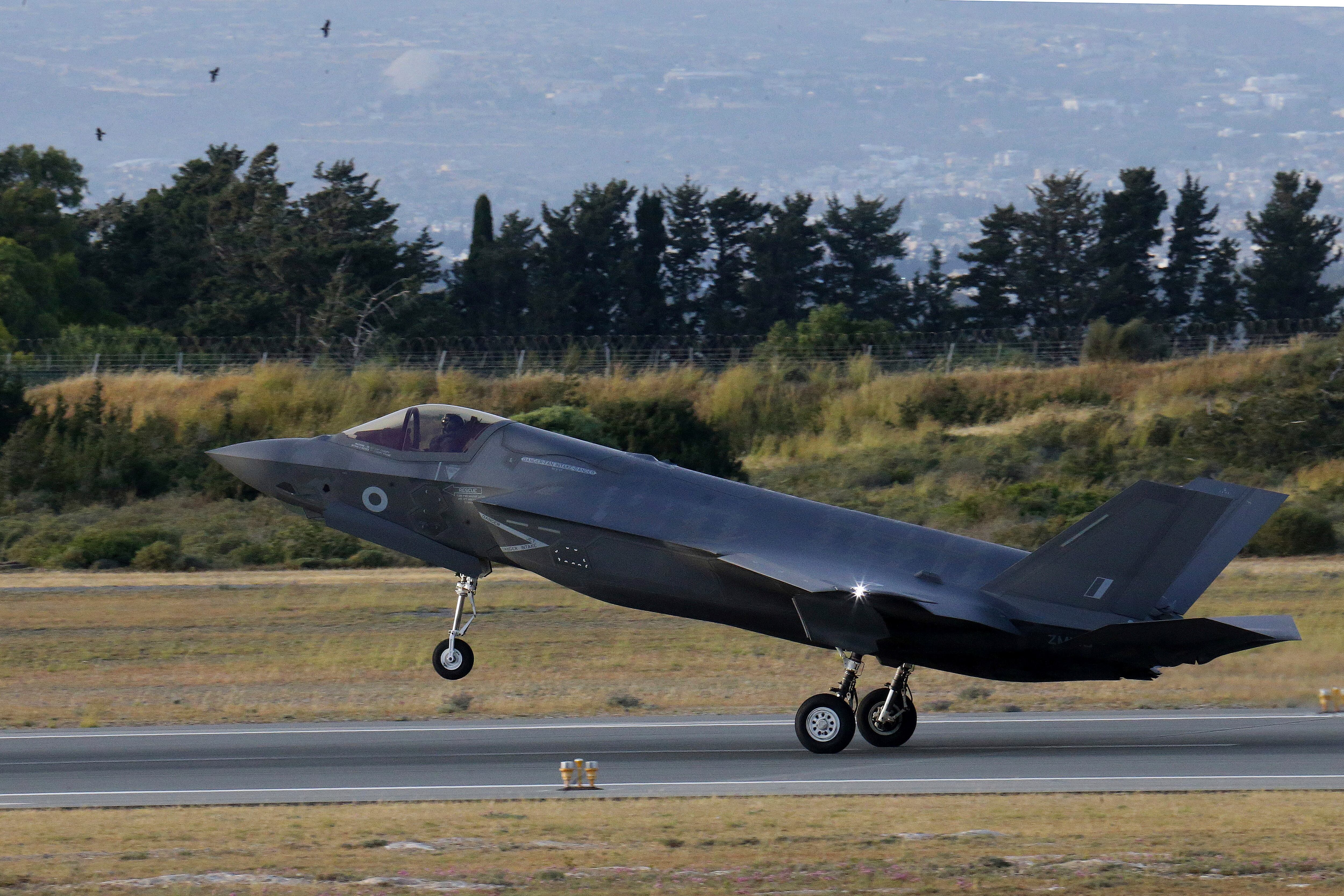NICOSIA, Cyprus — Britain’s most advanced military aircraft, the F-35B Lightning II Joint Strike Fighter, has flown its first missions over Syria and Iraq as part of ongoing operations against remnants of the Islamic State group, the U.K.'s defense secretary said.
Defense Secretary Penny Mordaunt said in a statement released Tuesday that that the jets’ first operational mission from a British air base in Cyprus was made following a highly successful training period.
"Their first real operational mission is a significant step into the future for the U.K.," Mordaunt said.
Six F-35B aircraft from 617 Squadron flown by three British Royal Navy and three Royal Air Force pilots, arrived at RAF Akrotiri on May 21 for a six-week deployment as part of Exercise Lightning Dawn.
British military officials had said there were no plans for the aircraft to conduct combat missions during their stay at RAF Akrotiri.
But it was decided that they were ready to make their operational debut as part of Operation Shader — the U.K.'s contribution to the fight against Islamic State group — because of their "exceptional performance."
RELATED

Officials said the aircraft didn’t fire any weapons when flying alongside Typhoon jets during the missions over Syria and Iraq.
The F-35 is the first aircraft to combine radar-evading stealth technology with supersonic speeds and the ability to conduct short takeoffs and vertical landings.
The 617 Squadron jets will be deployed this autumn aboard Britain’s new aircraft carrier, Queen Elizabeth, for a battery of operational tests. The tests will be carried out off the east coast of the U.S. in preparation for the aircrafts’ first carrier strike deployment planned for 2021.
The U.K. now owns 17 F-35B aircraft with plans to procure a total 138 jets.
According to Lockheed Martin’s F-35 Lightning II website, British industry will build 15 percent of the more than 3,000 jets that are planned to be built. British officials say the program has already generated orders worth $12.9 billion and at peak production will support thousands of British manufacturing and engineering jobs.






